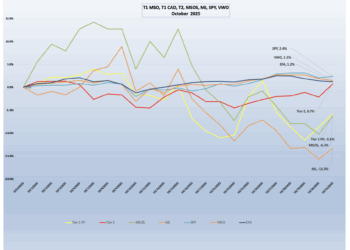For the first time in 10 years, an important Senate committee cleared a cannabis banking bill on Sept. 27, sending it to a vote before the full Senate.
But this year’s Secure And Fair Enforcement Regulation (SAFER) Banking Act still has a long way to go before becoming law as it would face a contentious, Republican-led House of Representatives even if it passes the Senate.
Originally introduced as the SAFE Banking Act, the revised SAFER act (S 2860) represents a number of compromises that members of the Senate Committee on Banking, Housing and Urban Affairs made since the committee heard testimony on the legislation in May. Chief among them was Section 10, which pulled in Republican support by providing greater banking protection for legal businesses, such as firearms and energy companies.
Primarily, SAFER prevents banking regulators from prohibiting, penalizing or discouraging banks from providing financial services to legitimate, state-sanctioned and regulated cannabis businesses, as well as their service providers. It includes protections for hemp businesses and allows legal marijuana-related income to be allowed for federally covered mortgages.
“This bill is about public safety first and foremost,” said Sen. Steve Daines, R-Mont., a co-sponsor of S 2860, even though he opposes legalization or decriminalization of marijuana. “The current all-cash model of legal cannabis businesses makes them targets for theft, tax evasion and organized crime.”
The committee passed the legislation on a 14 to 9 vote. Naysayers ran the spectrum of staunch marijuana legalization opponents, such as Sen. Mike Rounds, R-S.D., to those who felt the bill did not go far enough to correct the harms that the 50-year war on drugs has caused to minority communities, such as Sen. Raphael Warnock, D-Ga.
However, the majority supported the compromise legislation. Sen. Elizabeth Warren, D-Mass., said she agreed with Warnock that it “does nothing for criminal justice” and those communities most harmed “are least likely to profit.” She said marijuana sales were estimated to be over $31 billion this year, and the business owners who stood to profit are 80% white. Fewer than 5% of owners are black people.
But she supported the bill as “common sense policy” and a “step forward.” She specifically called on the Financial Crimes Enforcement Network (FinCEN) to update its 2014 red-flag guidance regarding marijuana-related businesses to ensure that a business owner’s past conviction of a marijuana crime cannot be a reason to deny financial services.
Under SAFER, FinCEN is mandated to update its cannabis banking guidance within 180 days of enactment.
Section 10 key to Republican support
Helping to move this bill forward, at least for some Republicans, is a provision known as Section 10. It was included to counteract the Obama Administration’s “Operation Choke Point,” which examined banking in certain industries with higher risk for fraud and money laundering. Conservative politicians have said it’s been used to target businesses such as gun manufacturers, energy companies and payday lenders.
“The illegal Operation Choke Point by the Obama Administration targeted politically disfavored groups in an attempt to drive them out of the banking system,” said Daines. He said the bill would ensure these legal businesses would be protected.
In the original SAFE Act, Section 10 was a short provision that prevented a federal banking agency from formally or informally requesting a depository institution to terminate a specific customer account or group of accounts based “primarily on reputational risk.”
Since May, this provision went from five to 13 pages as lawmakers added a “Sense of Congress.” It details that regulators have a duty to ensure that depository institutions operate in a “safe and sound manner” with processes and procedures to identify fraudulent or illegal activity. But that duty “rests on laws and regulations, not the personal beliefs or political motivations.”
“Undue pressure and coercion designed to restrict access to financial services for lawful businesses have no place at any appropriate Federal banking agency,” the SAFER act says.
Banks should take a risk-based approach when working with customers, but they are “neither prohibited nor discouraged” from providing services to businesses following federal and state laws.
Still, another section, Section 15, says nothing in the act requires financial institutions or insurers to provide financial services to a state-sanctioned cannabis business or any other business.
Other changes from the original SAFE act
Also added to Section 10 is a requirement for federal banking agencies, in consultation with state bank supervisors and the secretaries of Commerce and Treasury, to promulgate rules or guidance within two years to increase access to deposit accounts for businesses and consumers. The rules should specifically address increasing access to accounts in rural, low- and moderate-income, and tribal communities.
SAFER also extends the timeline for the Federal Financial Institutions Examination Council to develop guidance and examination procedures for depository institutions to serve state-sanctioned marijuana businesses and service providers from 180 days to one year. These rules are to include accepting legacy currency deposits.
Additionally, the banking regulators now have 180 days, instead of 90, to update hemp banking guidance.
The current legislation still requires regulators to create an annual report on banking services to minority, veteran, women and tribal owned businesses, small businesses, and hemp-related businesses, as well as a Government Accountability Office study on barriers to marketplace entry. But “diversity and inclusion” language was stricken.
Section 10 also adds a biennial Federal Deposit Insurance Corp. survey and report on access to accounts by small and medium-sized businesses.
What’s next for SAFER banking?
Senate Majority Leader Chuck Schumer, D-N.Y., has vowed to get the SAFER Banking Act to the floor for a vote quickly. He has also said he wants to add the HOPE and GRAM acts to it. HOPE (Harnessing Opportunities by Pursuing Expungement Act, HR 2677) would provide funding to states to expunge cannabis offenses and require the DOJ to study the costs and effects of incarcerating people for cannabis criminal offenses. GRAM (Gun Rights and Marijuana Act, HR 2772) would allow cannabis users in legal states and tribal communities to own guns.
But as a government shutdown looms under a divided, Republican-led House and hundreds of military promotions languish in the Senate over a policy stalemate, it will still be an uphill battle for SAFER to get through both houses of Congress, especially by the end of this year.
Attorney Adrian F. Snead, a partner at Porter Wright Morris & Arthur LLP, who helped write the SAFE Banking bill in 2015, said that if Minority Leader Mitch McConnell allows a floor vote, it will still have challenges, and likely more on the left than the right side of the aisle. “In the Senate, it doesn’t take much to derail a bill,” he said.
“The point of the bill was simple, to let banks to bank the industry without fear of prosecution and asset forfeiture,” Snead said. “When you start folding in other legislation, it becomes a political football.”
However, attorney Joseph Lynyak, a partner in Dorsey & Whitney’s Finance & Restructuring Group in Washington, D.C, says, “The wild card now is not the Senate. It’s the House. They’re all crazy.”
Both attorneys said the SAFER Banking Act’s best odds of passing both chambers is if it’s included in a “must-pass” appropriations bill, such as the National Defense Authorization Act or the Farm Act. Still, Snead gives it only a 5% chance of passing this year.
Even if the bill does pass in a similar form to what was approved Wednesday, it could be anywhere from six months to a year before banking institutions get the updated regulatory and compliance guidance they need to decide whether to serve the cannabis business industry.
Snead noted, however, that the new rules will likely be more liberal than current regulations. He and Lynyak agreed that smaller and mid-size banks may come into the industry sooner, but big banks will likely wait.
“Those banks already in it will double down,” said Snead.












